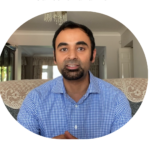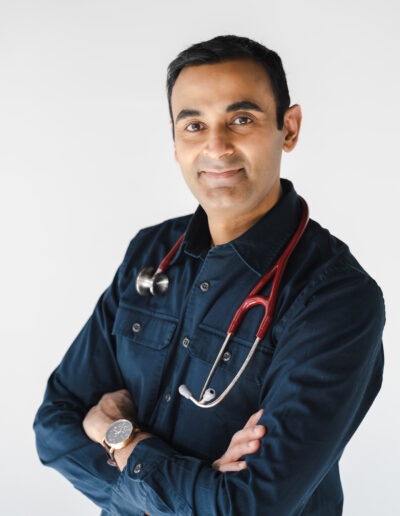Just over 100 years ago, a very great and wise American by the name of Thomas Edison said:
“The doctor of the future will give no medicine, but will interest his patients in the care of the human frame, in diet, and in the causes and prevention of disease”
This may be one of the best quotes in medical history. Thomas Edison lived in a time when, like most of mankind’s turbulent history, life expectancy statistics were abysmal (somewhere between 40 and 50 years old in 1900s America).
I studied medicine to become a doctor, and of course miraculous medicines and cutting-edge treatments will always be the mainstay of treating today’s disease. But my passion for preventive and lifestyle medicine came about because I firmly believe that we have solely become a sick-care system, instead of a true health system. So many of the illnesses we deal with today, are the result of poor lifestyle. Conditions such as diabetes and heart disease have soared along with obesity rates over the last 30 years (ironically at a time we were making tremendous progress in treating lots of other previously fatal diseases). Ask any practicing doctor, and they will tell you how intrinsically tied peoples’ lifestyles are to a large percentage of illnesses they see every day. And even away from diet, exercise, and staying in shape—we see people get sick during stressful times in their lives. It happens all the time, and suboptimal mental health is another epidemic gripping modern day society.
I hope that as our understanding of wellness and disease evolves, more future physicians are educated about the importance of this, greater emphasis and incentives are placed on keeping our patients well, and more research shows just how much difference can be made with the right encouragement and governmental policies—from young schoolchildren onwards. Your DNA is not your destiny, your lifestyle is your destiny.
I hope that in the not-too-distant future, a patient can receive a diet, exercise and mindset prescription from their doctor.
I hope that lifestyle medicine takes center stage in a real health system that I will be proud to work in.
I hope that when people think “prescription”, a drug isn’t the first thing that comes to their mind.
I hope that Thomas Edison’s wise words come true.
 Suneel Dhand is a physician, writer, and YouTuber. He is Co-Founder at DocsDox. Follow him at Medstoic Lifestyle Medicine on YouTube and Instagram.
Suneel Dhand is a physician, writer, and YouTuber. He is Co-Founder at DocsDox. Follow him at Medstoic Lifestyle Medicine on YouTube and Instagram.


You know that I would comment on this Suneel (-:
You are right on, and so was Edison! It is what I have believed most of my life and tried to focus on wellness first. And to call health care by that name when it is indeed medical care will be hard to correct.
The problem as I see it is with medical schools and what they teach and who they recruit as students. I don’t know many doctors that know a fig about nutrition and therapeutic communication or just plain communication. The white coat and jargon keeps their humanity in abeyance as well as emotionally distant from their patients.
One wag wrote a long time ago, the problem of changing a curriculum (in this case in medical schools) is similar to moving a graveyard.
One more thing…do you think you might do a piece on how to recognize pre-diabetes and diabetes? As I understand it Medicare won’t way for a A1C unless the symptoms indicate or if the patient requests the MD to order. Many people may feel suboptimal but not know that their fatigue et al might be early indicators.
I shudder to think how many diabetics and pre-diabetics there are in our country and in many Western ones.
As always, I enjoy your blogs
Hi Sue. Indeed– nutrition and how to communicate, need to be part of every medical school curriculum with constant reinforcement! Pre-diabetes is a very important topic too, and this is intertwined directly with overweight/obesity…we diagnose it all the time and patients have no idea they have this. Thanks for the great comment, Suneel
What diet do you consider the healthiest
Hi Tammy, the answer to this depends on the individual, as there’s no one-size fits all approach here. However, broadly speaking, the follow rules apply: Limit carb intake, maximize vegetables and fruits, go whole, and cut back on processed foods, red meat and sugars. I am a huge fan of the Mediterranean diet, which can tick all of these boxes if done properly. Good luck. Regards, Suneel